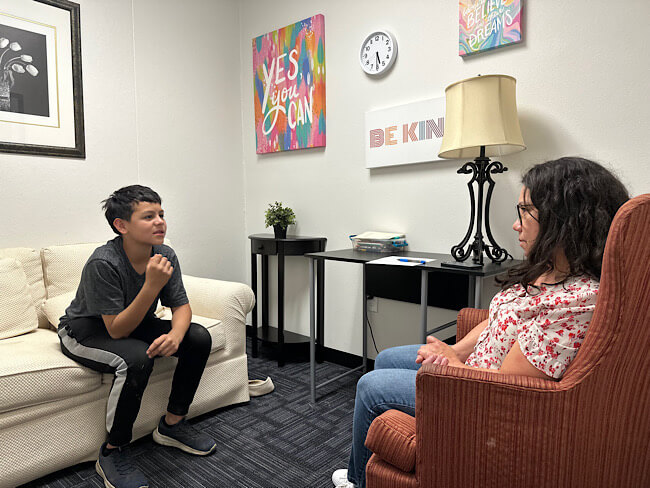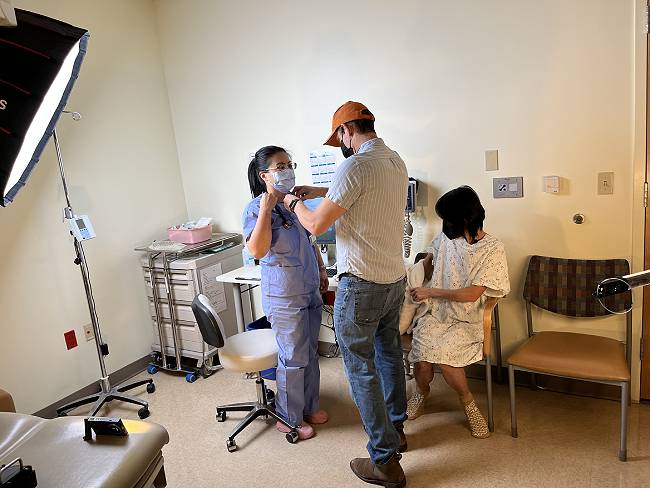Recruitment and retention in behavioral health
An expert’s insights on the changing mental health landscape, its impact on staffing, and how Kaiser Permanente is addressing it.
There is a concerning shortage of behavioral health care providers across the country. According to the federal Health Resources and Services Administration, by 2025, there will be a shortfall of more than 250,000 behavioral health professionals in the United States.
There are many reasons why we are seeing a surge in demand for behavioral health care services and a shortage of behavioral health care professionals — and they aren’t all negative.
A shift in the landscape
Although substance use and behavioral health challenges are rising, there is also a cultural shift in the social stigma related to seeking behavioral health support.
More celebrities are talking openly about their behavioral health journeys. As people hear Michael Phelps or Selena Gomez talking about the need to prioritize mental health, the conversation becomes normalized.
Additionally, the ability to provide excellent behavioral health care through telemedicine has made care more accessible. The COVID-19 pandemic also spurred changes. California therapists are now required to have 3 hours of training in providing telehealth care, and California’s governing body — the Board of Behavioral Sciences — now allows clinical supervision to be provided via video.
Since we launched this new approach in January 2021, we’ve had approximately 80 student placements, and our post-master’s degree pre-license programming has grown tenfold, with more than 300 pre-licensed providers getting clinical supervision as part of their job.
A focus on developing our people
At Kaiser Permanente, we knew we needed to do more to attract people to the field and to offer support once they have joined. Through a $30 million investment, Kaiser Permanente established the Mental Health Scholars Academy. The program pays 75% of the tuition of Kaiser Permanente employees who want to go back to school to become behavioral health professionals. Reflecting our focus on promoting diversity in the professions, more than 77% of participants are people of color, and nearly 40% are bilingual.
However, it’s not enough just to support people when they go back to school. These programs require many hours of supervised field practice. In many cases, aspiring behavioral health professionals must pay for this supervision.
For many people, this can be a serious barrier — so Kaiser Permanente takes a different approach. We continue paying our employees during their supervision, and we developed an internal clinical training program, the Behavioral Health Training Institute, so people can gain those clinical hours toward graduation. Once they graduate and get registered, they can stay with us in one of our newly developed pre-licensed positions.
It's crucial to give employees high-quality supervision hours and support as they move toward licensure more quickly than would be possible outside of Kaiser Permanente. This means we can help people advance through the workforce pipeline in a supportive way.
Since we launched this new approach in January 2021, we’ve had approximately 80 student placements, and our post-master’s degree pre-license programming has grown tenfold, with more than 300 pre-licensed providers getting clinical supervision as part of their job.
Retaining our behavioral health professionals
It’s not enough just to bring in more people. It’s important to ensure that we are supporting our behavioral health professionals as they grow their careers, gain experience, and find new roles and specialties offered within Kaiser Permanente.
There are opportunities across many different specialties within the organization, which can help our therapists avoid feeling pigeon-holed. Because of the diverse communities we serve, if as a therapist, you have an affinity for working with children, for example, or helping people with eating disorders, you can do that at Kaiser Permanente. Employees can challenge themselves with new, exciting roles and experiences.
A model that works
Over the past 3 years, Kaiser Permanente has shown that it’s possible to overcome barriers to the recruitment and retention of key behavioral health professionals. Kaiser Permanente is committed to ensuring that people are getting the behavioral health support they need, when and where they need it.











































